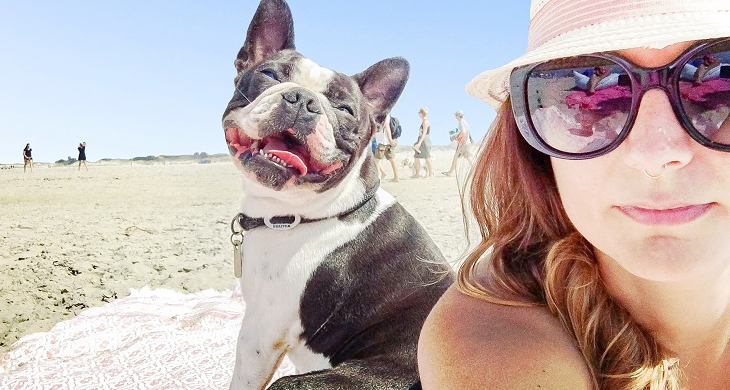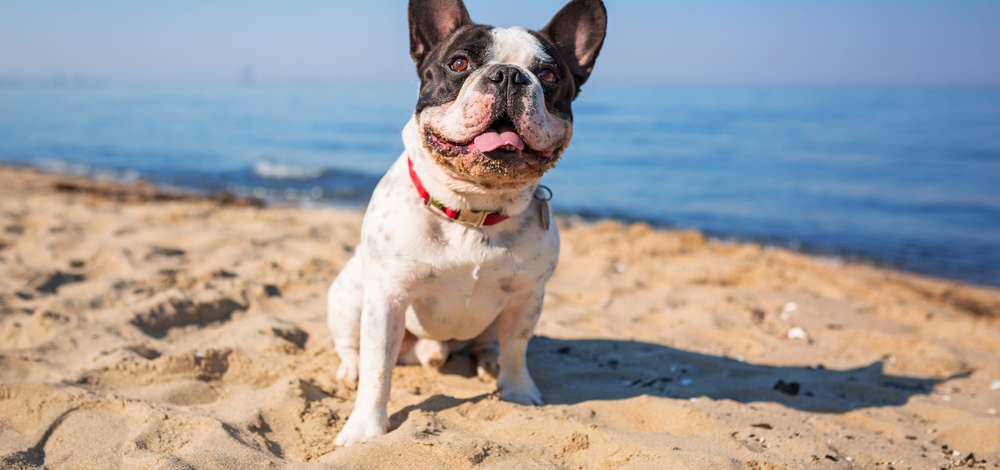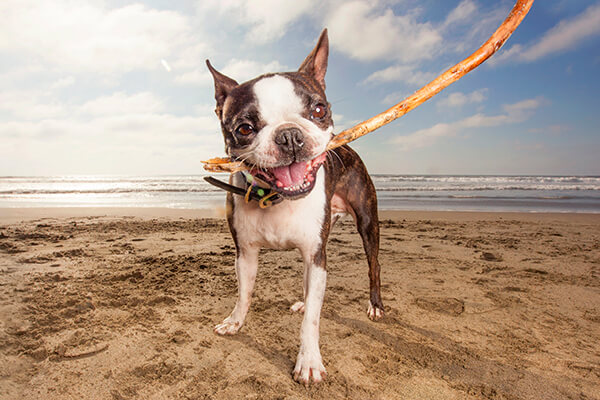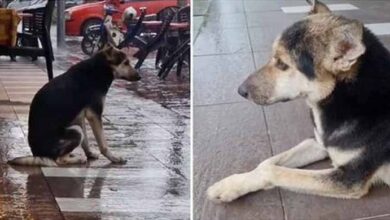I’m A Vet And Here’s Why You Should NEVER Take Your Dog To The Beach

A vet has issued a serious warning to dog owners about the hidden dangers posed to their pet pups at the beach.
As summer gets into full swing, trips to the ocean are once again back on the schedule – but according to one veterinarian, those seemingly carefree visits to the beach could end up turning into a nightmare if your pooch is brought along for the ride.
Writing for VetsNow, professional vet Laura Plyforth advised dog owners to take serious care when visiting a beach with their pets, warning about the myriad of dangers that could be lurking in the sand and the sea.
From blocked intestines caused by sand ingestion to deadly toxins found in dead fish, Laura revealed a host of terrifying risks that your pup could face if taken to the beach this summer – while also sharing her top tips for how to protect your dog against these dangers.
Laura explained that dogs can accidentally eat sand on the beach while playing fetch and picking up toys or sticks with their mouths – and while this might not seem like a major issue, too much sand can actually cause serious medical problems.
She notes that eating sand – whether on purpose or by accident while picking up toys and balls – can ’cause a blockage in the intestine, which is called sand impaction’.
‘Signs of this serious condition, which requires urgent veterinary treatment, include vomiting, dehydration and abdominal pain,’ she explains.

Laura also urges pet owners not to allow their dogs to eat any washed up dead fish at the beach because they might ‘contain potentially deadly toxins’, which – although rare – can be fatal to pups.
She also advises that dog lovers do not let their pets consume any sea water, which contains ‘salt, bacteria and parasites that can make them sick’.
To prevent dogs turning to the ocean to quench their thirst, she suggests ensuring that you have ‘plenty of fresh water’ to give them throughout the day – noting that you can also use it to wash your ‘dog’s skin and paws’ at the end of the day to avoid any irritation.
Another hidden danger to keep an eye out for are ‘discarded fish hooks’ which dogs are often attracted to as a result of their ‘shiny’ appearance and ‘tasty bait’ that might still be attached to them.
‘These can cause nasty injuries if embedded in their mouth, food pipe or stomach. Dogs can also suffer paw injuries from standing on fish hooks,’ Laura warns.
And fish hooks aren’t the only risky objects that could pose a threat to your pup, the vet writes, warning that there are ‘always temptations on the beach’, including food from other people’s picnics, discarded garbage, shells, and forgotten toys.

Palm oil – a substance that seeps into the ocean from large ships, congeals, and then washes up on beaches in clumps that sit on the sand – also poses a threat to dogs, because it can cause ‘vomiting and diarrhea when swallowed’, which in turn leads to dehydration and pancreatitis if untreated.
Washed up and dried up seaweed is dangerous as well because it can get stuck in a dog’s intestine and cause the stomach to expand.
Believe it or not, not all dogs know how to naturally swim. Dogs such as corgis and pugs don’t know how to and must learn instead.
A large body of water is a dangerous place to start their lessons, therefore, it would be best to teach them at a small pool that doesn’t have much depth.
Rip tides are very concerning for dogs at the beach. Even if your dog is a naturally strong swimmer, always err on the side of caution, especially on very windy days.
Strong waves can easily tire out your dog, therefore, it would be helpful to invest in a dog life vest.
Be on the lookout for any washed up jellyfish, or ones lurking in the water. Their sting can be very painful to endure.
It is best to check the tide times before a visit to the beach. Don’t let your dog explore mudflats, or go towards the water during the low-tide.
Make sure that you dog has some sort of shield from the sun to avoid the dangers of heatstroke. Options include having them stay under a beach parasol, or picnic table.
Hot sand can injury your dog’s paws, therefore, it is best to choose an early morning, or late evening time to go to the beach.
Dogs can get sunburned, especially ones with short or white hair, and pink ears. It is recommended to use a fragrance-free sunscreen that is made specifically for dogs.
Dogs running on sand require more energy than ones running on grass. This overuse and exhaustion of energy can lead to a potential heat stroke.




